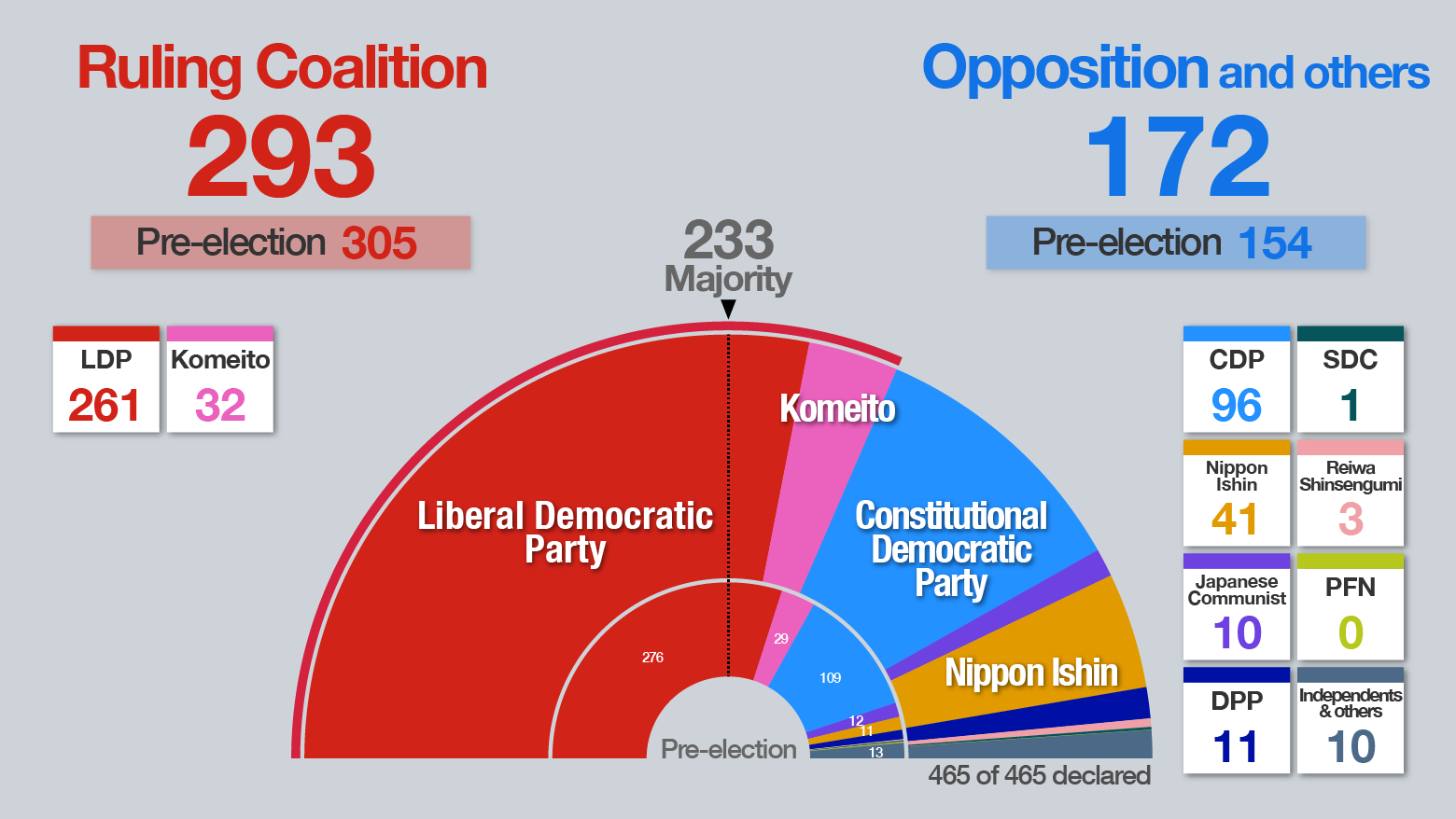Ruling LDP and coalition partner Komeito
The main ruling Liberal Democratic Party secured a clear majority, taking 261 seats on its own for control of the Lower House.
It's a result that means the LDP can easily push bills through the House, with a majority on the 17 standing Diet committees and the right to chair them all.
The party's coalition partner, Komeito, won 32 seats, up three from before the election.
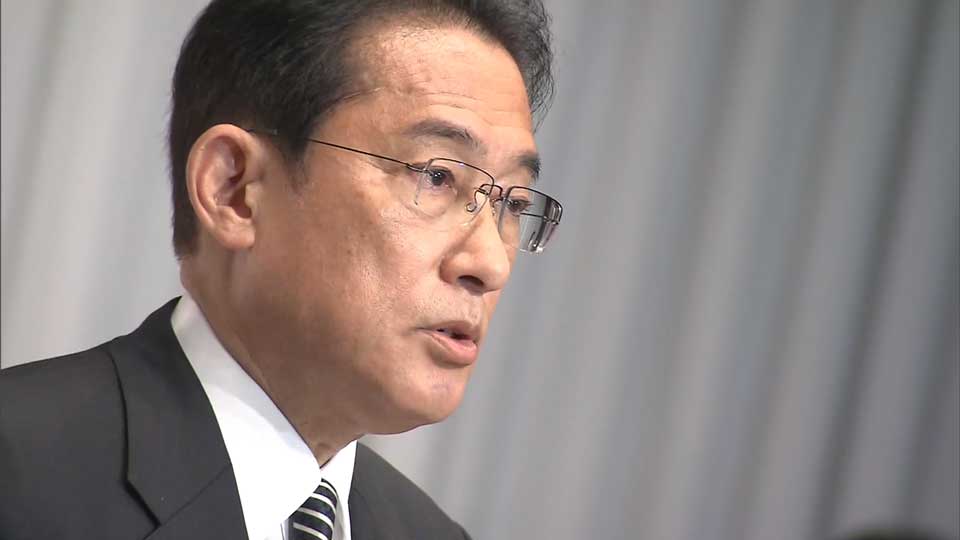
Opposition tactics backfire
The opposition parties formed a united front to back the same candidates in many districts.
But the Constitutional Democratic Party saw its haul of seats slide by 13 to 96, essentially forcing leader Edano Yukio to confirm on November 2 that he will step down to take responsibility for the losses.
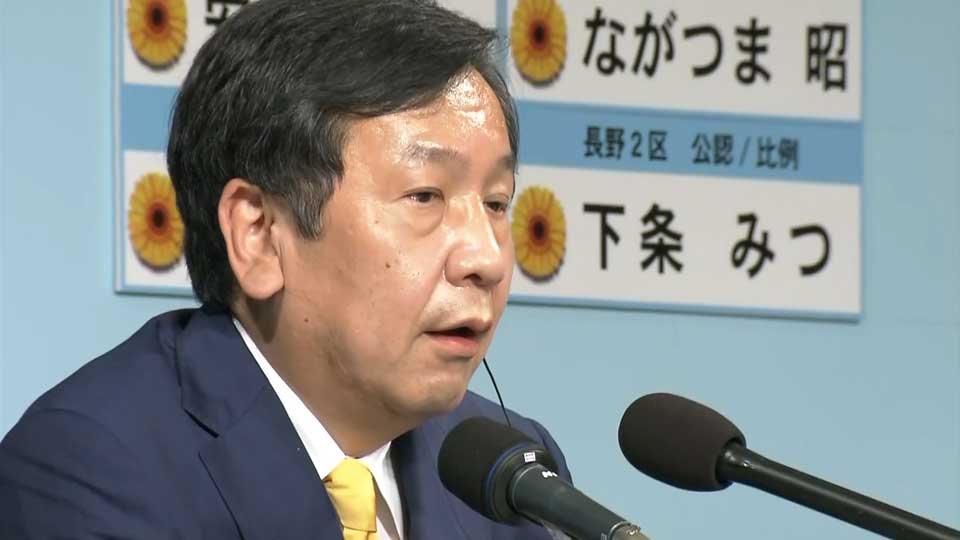
Among the others, Nippon Ishin (Japan Innovation Party) almost quadrupled its share with 41 seats, making it the third-largest party in the chamber.
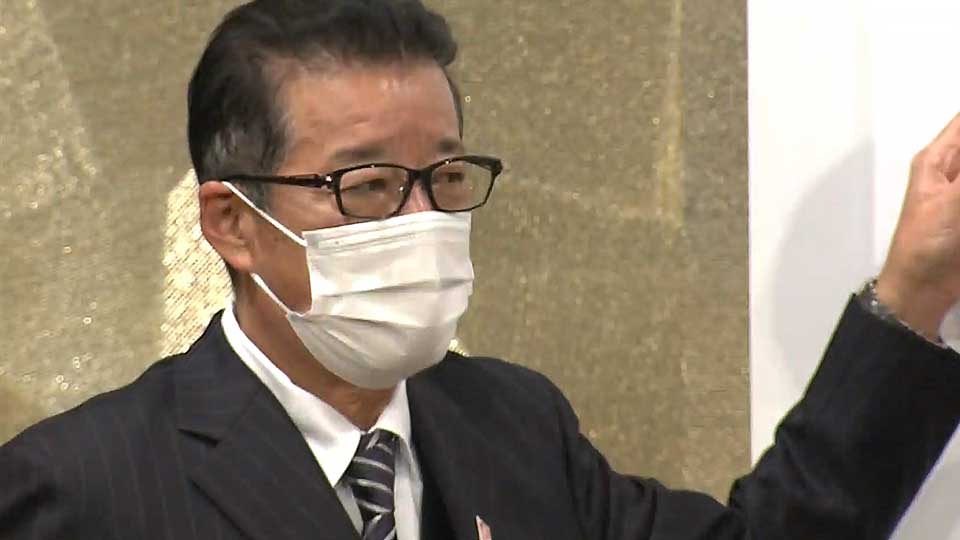
Top LDP official loses at home
LDP Secretary-General Amari Akira, who oversaw the party's campaign, suffered a setback in becoming the first incumbent secretary-general to lose his single-seat constituency.
In the post for barely a month, Amari said he will step down, despite securing an alternative seat through proportional representation.
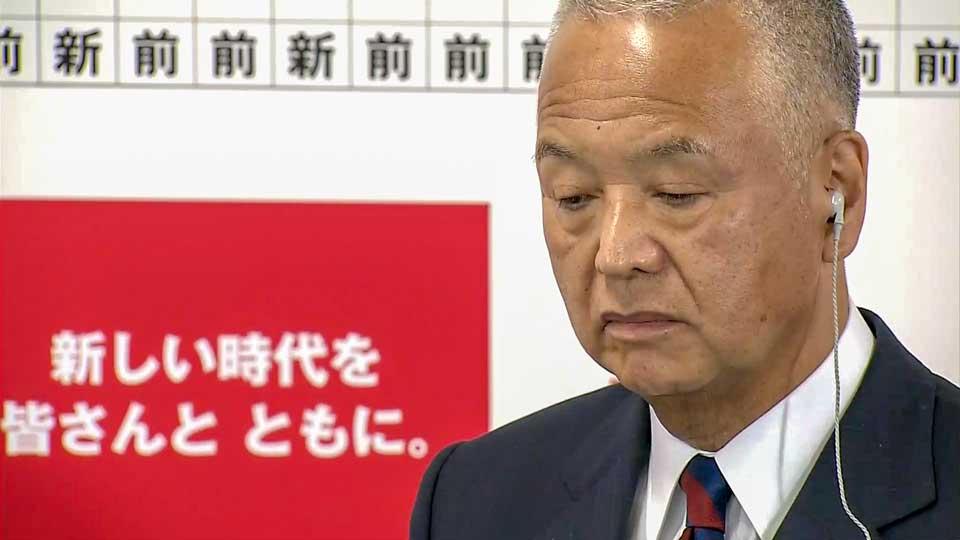
Analysis: Masuda Tsuyoshi, NHK World Senior Political Commentator
The result far exceeds the goal set by Kishida -- to secure a majority for the LDP and Komeito.
Party members had expected a more uphill battle, so some say the outcome is sufficient. The LDP did lose 15 seats, but this is an acceptable margin for the party as it had the security of a substantial majority from its landslide victory in the 2017 election.
However, Secretary-General Amari's historic loss and subsequent resignation is a genuine blow to the new administration. He was essentially Kishida's second-in-command.
On the other side, the outcome is a resounding defeat for the five opposition parties that consolidated candidates.
They filed unified candidates in 213 out of 289 districts. But the results show that while many voters are dissatisfied with the ruling coalition, they apparently do not have faith in the Constitutional Democratic Party or the Japanese Communist Party to improve things.
Instead, many of these voters seem to have defected to Nippon Ishin. The Osaka-based party is now a serious force in the Diet.
